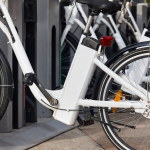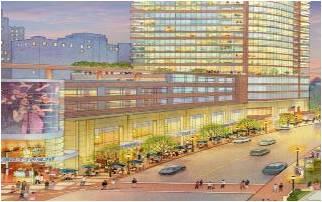New Jersey Future Blog
Mixed Use and Smart Downtowns
July 20th, 2004 by Chris Sturm
- Princeton used the state redevelopment law just as the Legislature intended when it declared a two-acre site of surface parking lots in its downtown as an area in need of redevelopment, according to an Appellate Division decision released on June 30.
- Today, one former city-owned parking lot boasts 500 new parking spaces in an indoor, automated parking garage. The face of the garage is hidden by an attached luxury apartment building offering 24 rental units plus retail space on the ground floor.
- A new public plaza in front of the apartments also connects tenants and garage users to the adjacent public library and downtown shopping.
- A second city parking lot will be redeveloped to offer another 53 apartments, including 12 affordable housing units, as part of the same plan. The apartments are scheduled to open in Fall 2005. The first gourmet grocery market in a generation to serve downtown will also be built on this site.
(Source: Appellate Division Decision 6/30/04).
REDEVELOPMENT KEY TO SMART GROWTH
An Appellate Court opinion released late last month affirmed that municipalities have a wide range of options when designating an area in need of redevelopment.
In the Princeton case, the court relied on smart growth land patterns to substantiate this finding. The court concluded that surface parking in this area negatively affected the Borough by serving as a barrier between shops which deterred walking. The court concluded also that structured parking would add to Princeton’s appeal by satisfying the need for more parking convenient to the new library.
The court stated that the additional retail and housing units that were part of the design would add tax revenue and encourage more private investment. In short, the opinion voiced approval for just the sort of mixed-use, compact development that smart growth promotes.
The borough’s decision had been challenged by a group of local citizens opposed to the change. New Jersey Future participated in the appeal as amicus curie, or friend of the court, arguing on behalf of development and redevelopment in existing communities, consistent with the State Plan – particularly when the communities, like Princeton, are designated centers for growth under the State Plan.
The decision does not give municipal officials a “blank check” to push through any type of development in any location; the requirements of the redevelopment law still need to be met. But it should assure municipal leaders that they have the flexibility they need to address local redevelopment issues, and encourage redevelopment throughout New Jersey.
















